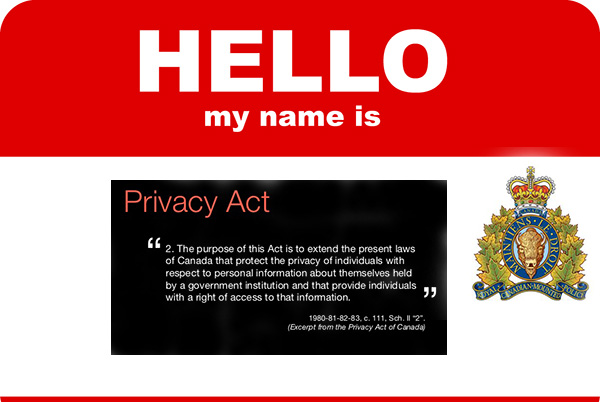Home »

About the release of names by RCMP

By Cpl. Chris Newel,
Kimberley RCMP
One of the comments we see most often on media sites below a police story is ‘who was involved, what are the names, why don’t they say who?’
The Privacy Act governs the names and release of information. In most cases people want to know who committed the crime or who was arrested, but in other cases there are comments seeking information of persons involved in traffic collisions or those who have died.
The RCMP is not allowed to release the name of a person that is simply arrested. The person must be charged prior to their name being released. RCMP policy goes one step further and does not release the name until the person makes a court appearance. In some cases a person is in custody, charges are laid and they go before a Justice of the Peace for a bail hearing. This addresses release or detention, not the allegation and as such there is limited information.
The police generally don’t make a habit of following up when a person is charged and when their court date is for the purpose of informing the public. The court lists are on line and available to anyone unless there is a publication ban, media outlets often use them to add a name to the story. Police are also restricted in what they can say once the matter is before the courts. So if a person is charged and the name becomes public police can’t discuss the evidence.
The RCMP can release names and photographs for persons where there is a Warrant of Arrest. They will also release names if there is a risk to the public, but only after careful consideration. Often involving legal consultation, balancing privacy and safety.
In the case of a deceased person, the BC Coroners Service is responsible for the release of names. The police will can issue a brief release outlining the circumstances but further details and names will come from the Coroner’s Service.







